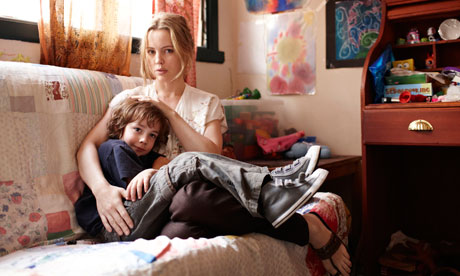
Not only have I never seen The Wire, but I have never read international word-of-mouth success The Slap by Christos Tsiolkas either. I expect both my Guardian contract and my middle-class membership certificate to be revoked any day now.
So my apologies before we begin for not being able to compare and contrast the novel with the eight-part dramatisation that began last night on BBC4. The first episode told the story – of, as even a fule will know through cultural osmosis, the fallout from a family barbecue that ends with a brattish three-year-old, whose parents refuse to discipline him, being slapped by someone else – from the host Hector's point of view.
Hector is a man on the edge – of 40 (the barbecue marks his birthday), of an affair with his children's babysitter Connie, of losing patience with his controlling wife, smothering parents and bickering kids and, if he takes any more cocaine, a heart attack. Not much happens in the opening episode until the last few minutes, but through Hector's eyes, we begin to see a dim outline of the old loyalties, new affinities, sibling rivalries, marital disharmonies, personal pressures and secrets in which he and his guests are enmeshed.
But it is perhaps too dim. It is only thanks to the foreknowledge of the story's premise that there is any degree of tension underlying the tedium. And the characterisation is even thinner than the plot – a particular handicap when you have a set of protagonists who so far seem fairly unsympathetic. You need complexity to draw you in.
That said, things don't half pick up after the blow has been dealt. Even the most disinterested viewer suddenly finds him or herself galvanised. You can imagine the arguments on sofas up and down the land. Of course Harry should have slapped the tyke! Of course he shouldn't! Of course you'd call the police if another family member belted your boy! Of course you wouldn't! Whether or not the characters' inner workings are developed in future episodes, I suspect we'll all be tuning in to see how this morality play comes out.
For what it's worth, I'd have slapped the parents.
Meanwhile, on BBC2, John Humphrys was examining who in our own country needs a good slap or not. The Future State of Welfare, presented by the former working-class boy from Splott (I know – home town of Shirley Bassey too! Surely an embarrassment of riches), examined whether Britain's welfare system had strayed too far from its original Beveridgian aims of slaying the five giant evils of want, ignorance, squalor, idleness and disease, and bred instead a culture of entitlement that has caused the benefits bill to increase by £60bn over the last decade. The programme had commissioned a Mori poll to prove how much more unsympathetic the public mood has become towards those on benefits, but the truest barometer was the existence of the programme itself, which asked as overtly as I have yet seen whether there is a distinction to be drawn once again between the deserving and the undeserving poor. No word yet on who gets to decide that, or on how close to the bone we must cut everything to make sure not one chancer gets a single unearned penny from the state, but I'm sure we'll all find out over the next few bleak, bleak years.
And speaking of bleak years, last night's Panorama – Dale Farm: the Big Eviction (BBC1) unpicked the knotty history of the eviction of 81 Irish traveller families from the encampment that they have called home for the past 10 years. The talk was of planning permission, brownfield and greenfield sites and legal jiggery-pokery, but at its heart was the same tricky notion of fairness that beat within Humphrys' programme. Was it fair that the travellers be turned out of their homes? Was it fair that the planning laws didn't seem to apply to them? Was it fair that the law says councils no longer have to provide sites to allow them to live their preferred nomadic lifestyle? Was it fair that some villagers' properties had been made unsaleable by the site's proximity? Despite having evidently become fond of the families whose story he had been following for the past six years, Richard Parry's film was admirably even-handed in its illumination of the questions and its quiet acknowledgment of the absence of any answers. Another impressive Panoramic view.

